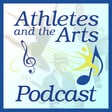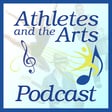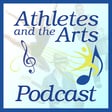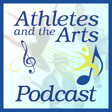
Multiple Sclerosis and the Musician
Raymond Meade has been in the UK music industry for over two decades, first as a singer/songwriter for the Ronelles, a solo artist and session musician, and current bassist for Ocean Colour Scene. He also made a BBC documentary about the music of Auschwitz. His life is literally in his hands.
So what happens when those hands start tingling during a concert...and it doesn't stop? When you suddenly can't play music? When your doctors tell you that you have Multiple Sclerosis?
Listen to Yasi and Steven's interview with Raymond as they talk about him facing his own mortality, the strength of friendship and family to survive, and the perils of a music career on the edge. Also, meet Dr. Mark Janicki, an neurologist and MS specialist from Indiana, whose "always leave a patient with a smile" approach and early intervention from across the pond helped Raymond tackle the biggest challenge of his life.
Follow Raymond on Twitter at @raymeade82
Follow Raymond on Instagram at @ray_meade82
For more information on Multiple Sclerosis (MS), go to https://www.nationalmssociety.org
For more about Raymond's music career, go to https://www.powerpopaholic.com/artist-interviews/raymond-meade
To listen to Ocean Colour Scene, go to https://www.oceancolourscene.com
For a link to Raymond's documentary, "The Railway People", go to https://www.youtube.com/watch?v=ht0BuOhU_RQ
For information about Mark Janicki, MD, go to https://www.witham.org/provider/mark-j-janicki-md-neurology
For information about Athletes and the Arts, go to https://www.athletesandthearts.com
Bios:
Raymond Meade: Raymond Meade is a session musician from Glasgow, best known for his work with Ocean Colour Scene and Gerry Cinnamon. He has played on gold selling #1 albums and toured internationally for over 20 years, performing with some of the biggest names in music.
Raymond also wrote and produced the New York Festivals Award winning documentary "The Railway People" which told the story of Holocaust Survivor Eva Kor and Raymond returning to Auschwitz together in 2016. The film was shown across the world. Eva and Raymond remained close friends until her death in 2019.
During the pandemic years, Raymond produced a series of true crime podcasts which revisited The West Murders of 1994. Titled "Where No Shadow Falls", these podcasts featured key players in the case and were very well received.
He is currently studying a degree course and learning the Polish language with a view to realising his ambition of becoming an Auschwitz tour guide in the future.
He writes the occasional article for the men's lifestyle magazine GQ.
In 2021, Raymond was diagnosed with relapsing remitting multiple sclerosis. He is married and lives in Glasgow with his wife Leanne.
Mark Janicki, MD: He is a board certified neurologist, a fellow of the American Academy of neurology. He has been involved in over 15 clinical trials regarding disease modifying therapies for multiple sclerosis. He trained at Indiana University medical school and residency in neurology at Indiana University Medical Center. He has lived in Practice in the metropolitan Indianapolis area for the past 35 years. He is a diehard Indianapolis Colts fan. Married to Maribeth, he has five children and five grandchildren. He loves golf...it doesn't love him back.



